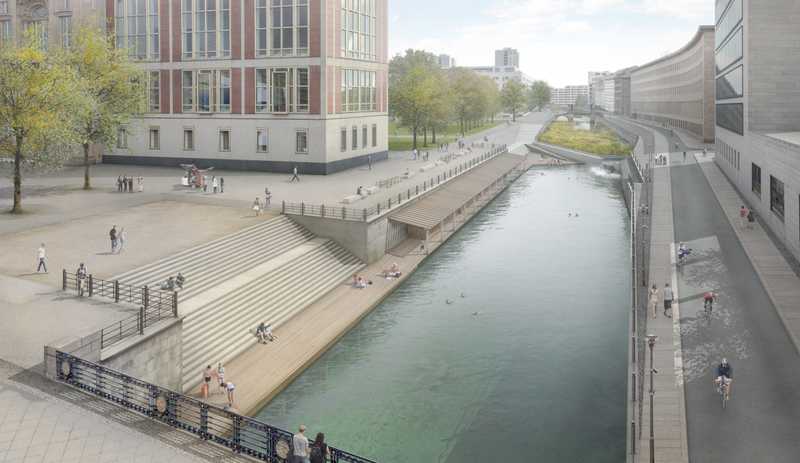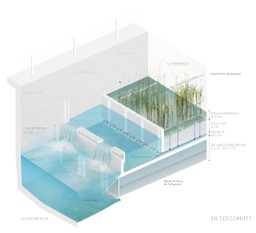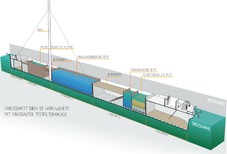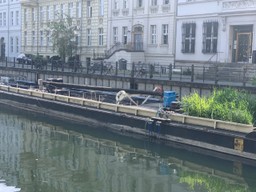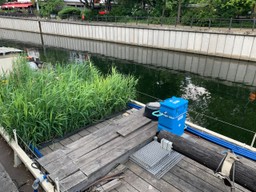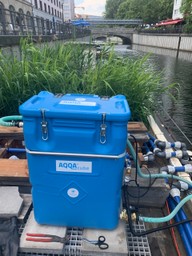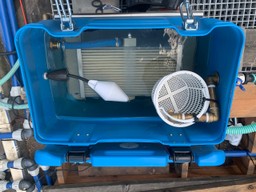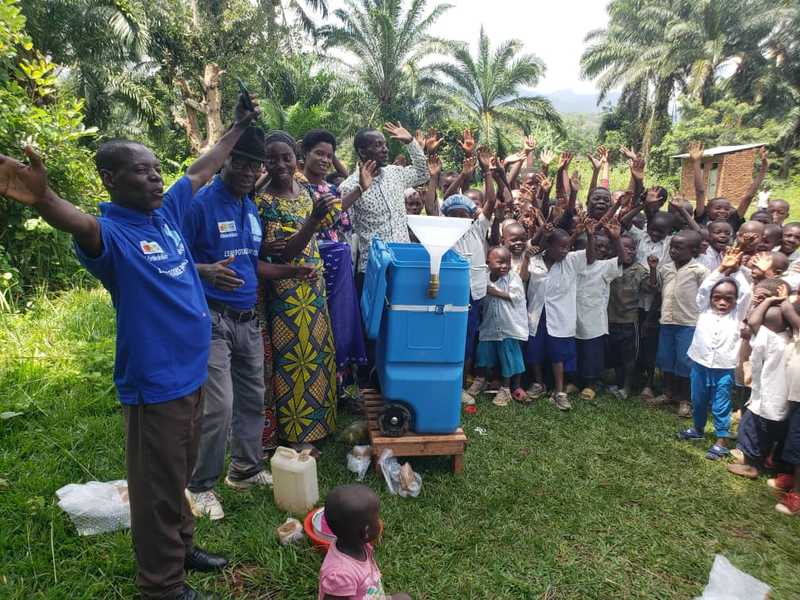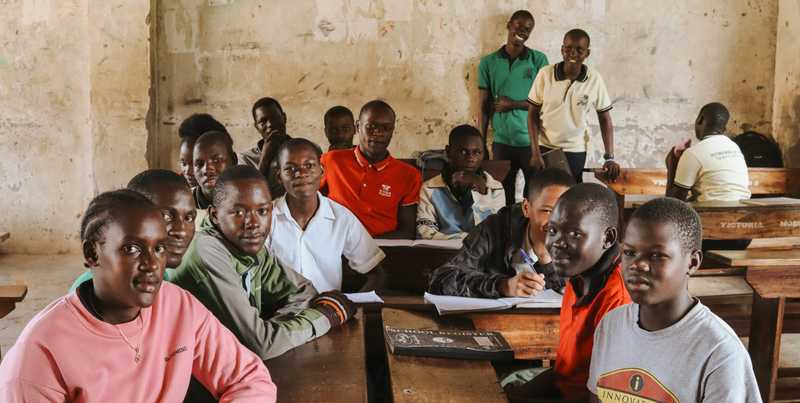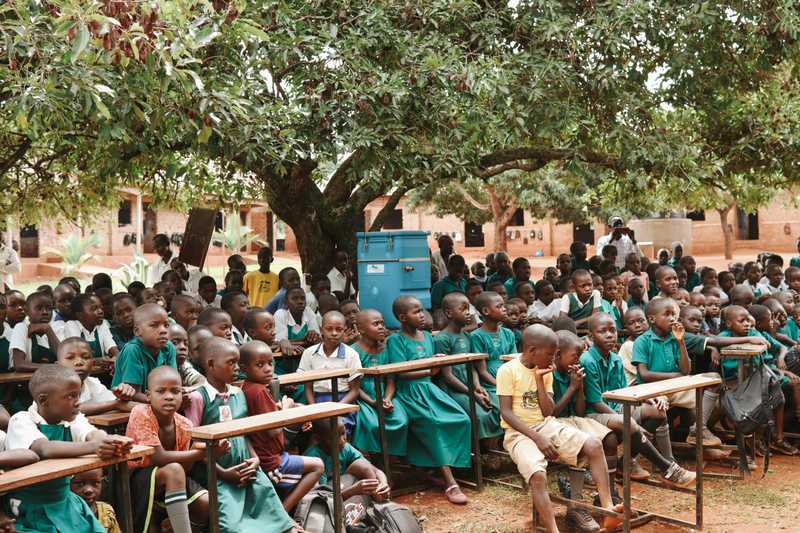Two organisations, one common goal
The non-profit association Flussbad Berlin e.V. has been working on the ecological redesign of the Spree Canal for several years with the project FLUSS BAD BERLIN and wants to enable river bathing in the historic centre of Berlin for the future. The aim is to revitalise the largely unused shipping lane and former development axis of the city as a public space and to enable people to spend time by the water in the city centre.
Along the approximately 1.9-kilometre-long Spree Canal, a biotope landscape and an area for the natural purification of the river water will be created. In the subsequent, approximately 850-metre-long section of the canal, flight of steps will make access to the water possible at several points and invite people to swim.
For this reason, the topics of water purification, water conservation, water protection and water hygiene are of particular importance for the FLUSS BAD BERLIN project.
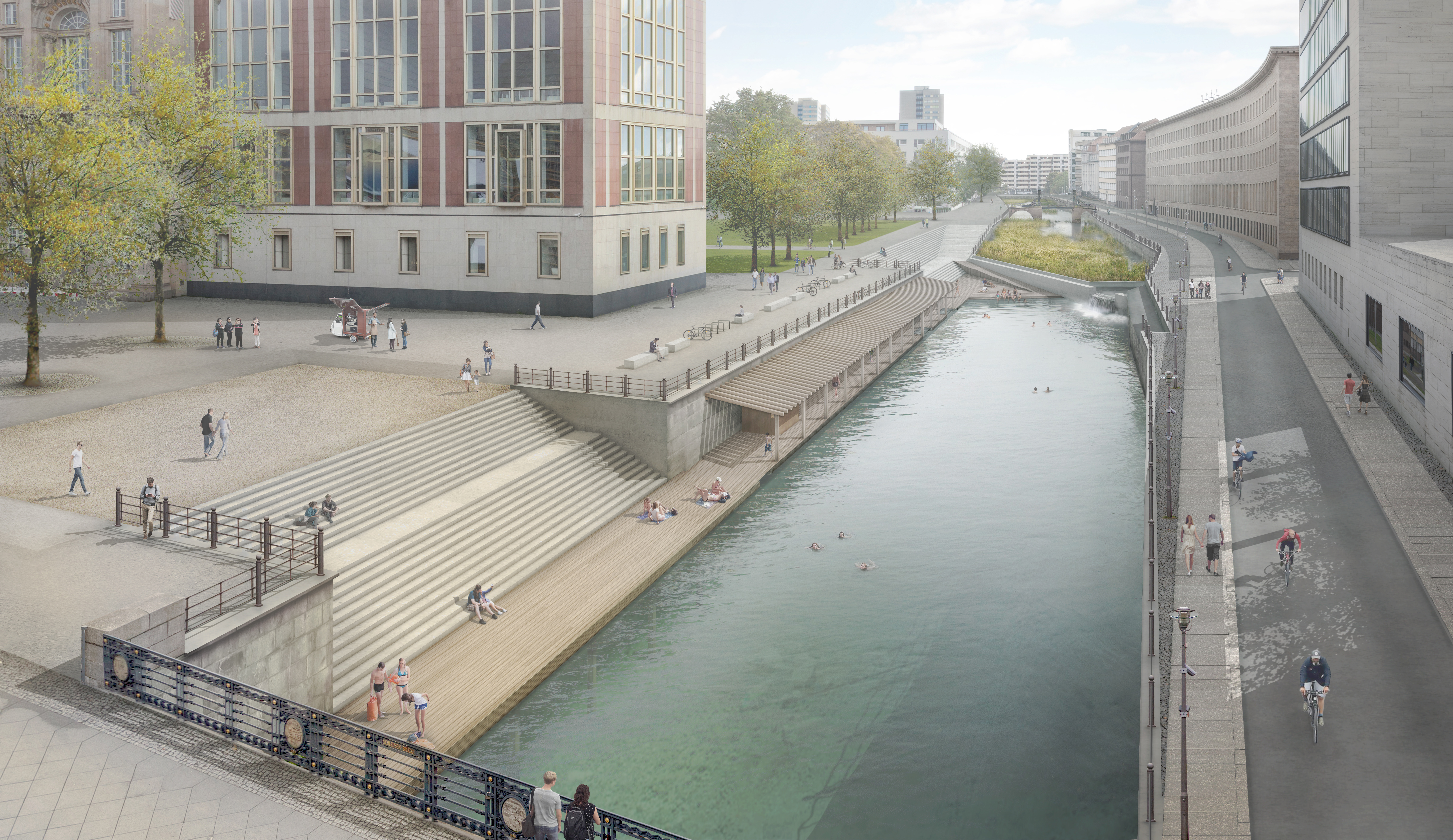
The test filter in the barge
Since 2017, the association has been closely sampling the water in the Spree Canal on an installed test filter system on the barge “Hans-Wilhelm” using several filtering methods. This has made it possible to generate a growing body of data that allows more precise statements to be made about the condition of the water body and the water quality.
This data forms the basis for the development of local solutions for water purification and water conservation. Three test filter basins with a capacity of 24 m3 each are installed in the barge. The difference between the filter basins lies in the use of the respective filter material, the controllable flow rate as well as the flow direction.
In filter one the filter granulate consists of expanded clay and in filter two of lava rock. Filter three contains gravel with a fine grain size. The smallest covered tank with a capacity of 8 m3 used to contain mussels, which have now been replaced by gravel with a coarser grain size.
In the last basin with a volume of 70 m3 , the swimming area is simulated on a scale of 1:80 as a freshwater basin that is filled with filtered water once a day. The respective filter basins can be connected in parallel, which is why the tests also run in parallel and thus enable a direct comparison of the effectiveness of the different filters.
The cooperation
Due to the common goals of water purification, maintenance and hygiene – and thanks to the help of the supporting team of Flussbad Berlin e.V. – WeWater had the opportunity to test the AQQAcube in practice on their barge. A long-term test was developed in which the surface water of the Spree is treated using ultrafiltration technology.
In the test filter system of Flussbad Berlin itself, the filtration effect is observed in connection with the respective water quality. On the other hand, the basic design and mode of operation of the filters is also examined and measured in order to be able to draw conclusions about the future project filter.
From a hygienic point of view, the growth of algae and cyanobacteria (also known as blue-green algae), which can endanger human health, must be observed as requirements. Phosphorus prevents the growth of harmful organisms, which is why its total value is also measured.
In addition, the system permanently records the parameters water temperature, flow rate, conductivity, turbidity, pH value, chlorophyll and oxygen content via built-in sensors. The visibility depth is also monitored due to safety aspects, as the detection and rescue of drowning victims is an important aspect for future implementation.
Since the Spree is extremely polluted for a short time due to overflow events from the sewage system, e.g. due to heavy rainfall, there are three automatic samplers on the plant that take, store and cool composite samples at various points in the plant at short intervals. These are also collected and analysed in the laboratory.
For WeWater, the characterisation of surface water plays an important role, as water from rivers or lakes serve as drinking water sources, especially at the project sites in Kenya and Uganda so far. The filtered water is examined by ourselves and in laboratories, and the quality before and after filtration is compared in order to constantly examine the treatment performance. In addition to the parameters already mentioned, the water is also examined for water quality parameters such as E.coli concentration, chlorine, nitrates, etc., as their reduction reflects the effectiveness of a treatment method.
However, attention is not only paid to this, but also to the performance of the cube. This involves investigating whether constant operation has a negative influence on the performance of the product in the form of a decreasing flow rate. The aim is to identify potential for optimisation so that we can also take a critical look at our product and continuously improve it in order to be able to guarantee reliable drinking water treatment.
The project is being supervised and worked on as part of a master’s thesis. The adapted AQQAcube was donated by Weise Water GmbH, which is why WeWater only incurs material costs. The supervision and evaluation, like all our work, is done on a voluntary basis.
You can find more information about Flussbad Berlin e.V. at
The barge is currently in the Märkisches Ufer and can be viewed from the land.
https://goo.gl/maps/AUNxUAk1nU3zNpZ99
You will also find more information boards about the project in the Flussbad Garden on the Spree Canal.
